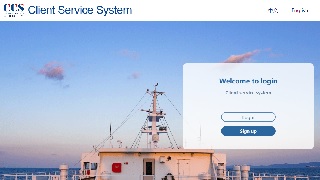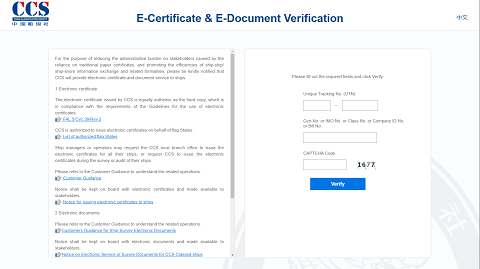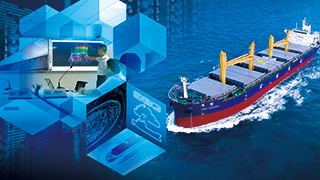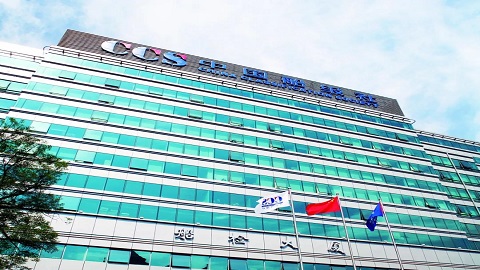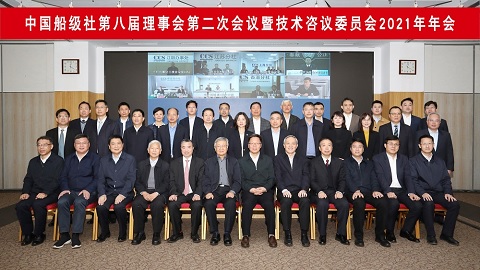As the technological revolution and industrial transformation accelerate, the transition toward digitalization and intelligence is an inevitable trend in shipping development, gradually becoming a powerful engine to boost the new quality productivity of the shipping industry.
As the technological revolution and industrial transformation accelerate, the transition toward digitalization and intelligence is an inevitable trend in shipping development, gradually becoming a powerful engine to boost the new quality productivity of the shipping industry. On October 20, 2025, the "2025 North Bund International Shipping Forum-Digital and Intelligent Sub-forum," co-hosted by China Classification Society (CCS) and Shanghai Jiao Tong University, was held at the Star Hall of the World Living Room.

Under the theme "Empower Shipping with Digital Intelligence, Build an Open Collaborative Ecosystem ", the forum attracted over 400 participants including heads of international organizations, industry leaders, experts from authoritative institutions, and renowned scholars. They collectively explored the contemporary value of digital and intelligent technologies in shipping and their transformative impact on the sector. The event featured welcome addresses by Ye Xing, Deputy Director of Shanghai Municipal Transport Commission; Gao Haiyun, Second-Level Inspector of the Water Transport Bureau under the Ministry of Transport; and Xi Lifeng, Executive Vice President of Shanghai Jiao Tong University.
Xi Lifeng emphasized that technological innovation is driving maritime transformation, while digital intelligence empowers shipping evolution – these are the defining trends shaping the industry's development and crucial strategies for advancing Shanghai's high-quality growth as an international shipping hub. When discussing how the shipping sector's progress ultimately manifests through cutting-edge scientific achievements, Xi highlighted Shanghai Jiao Tong University's innovative contributions in advancing the "Grand Ocean" strategy and participating in the Shanghai International Shipping Center initiative. He expressed hope that the forum would foster collaboration, enabling joint efforts to accelerate the digital and intelligent transformation of the shipping industry.

Subsequently, Yang Zheng, General Manager of China Classification Society Shanghai Branch, presided over the keynote speech session.
Xu Zuyuan, former Vice Minister of the Ministry of Transport and Chief Expert of Decision-Making Consultation at the China Association for Science and Technology, delivered a speech titled "Accelerating Digital and Intelligent Transformation in Shipping to Build a New Development Paradigm".

Academician Yan Xinping of the Chinese Academy of Engineering delivered a keynote speech titled "Reflections on Empowering Shipping with Digital and Intelligent Technologies", sharing his insights into the digital and intelligent transformation of the shipping industry. Through examining "digital advancements", "intelligent innovations", "digital-intelligent transformation projects", "corporate explorations", and the practices of his research team, Yan reviewed the progress of digital and intelligent technologies in shipping development. He further outlined future prospects, proposing to establish a new shipping paradigm characterized by "computable, predictable, and decision-driven" operations through the deep integration of digitalization and intelligent technologies.

Marie Caroline Laurent, Senior Vice President of Global Maritime Policy and Governance at MSC, noted that digitalization has revolutionized operational models, profoundly transforming fleet management, customer service, and the achievement of sustainable development goals. As a founding member of the Digital Container Shipping Association (DCSA), MSC is driving industry-wide adoption of standardized technical protocols, with all DCSA members committed to achieving 100% electronic bills of lading by 2030.

Cui Haidong, Deputy Director and Chief Engineer of China Mobile Communications Group Design Institute, highlighted the full-stack smart ocean architecture. This framework establishes a three-dimensional marine digital ecosystem with the 'three alls' network as its foundation, while leveraging AI-powered marine big models to drive intelligent upgrades in the marine industry, achieving profound breakthroughs in digital and intelligent transformation.

Stephen Gordon, Managing Director of Clarksons Research, highlighted through multiple datasets that the shipping industry is at a pivotal stage of green transformation. He stressed that achieving net-zero emissions requires a coordinated effort of technological innovation, digital empowerment, and intelligent upgrades. Technological iteration forms the foundation of this transition, digital intelligence serves as the core of decision-making, and collaborative development is the inevitable path forward.

Jiang Yafeng, Vice President of China Classification Society, stated that the technological revolution driven by digitalization and intelligence is reshaping the global shipping industry, accelerating the digital transformation of the entire ship lifecycle and industrial chain. China Classification Society is conducting innovative practices in multiple aspects: establishing and improving the regulatory system related to digitalization and intelligence, issuing relevant guidelines and applying them to actual ships; promoting the safe application of intelligent systems and building verification capabilities; developing digital and intelligent solutions, such as inspection platforms and intelligent knowledge bases; advancing industry data sharing to create a "digital space for the shipping industry"; and deeply participating in international maritime affairs, actively contributing technical achievements to the International Maritime Organization and the International Association of Classification Societies. In the future, China Classification Society will collaborate with the industry to co-create a new digital and intelligent shipping ecosystem, strengthen the construction of strategic scientific and technological capabilities for maritime safety, accelerate the development of standardized and service-oriented products, promote the establishment of an industry digital ecosystem, and work with all parties to facilitate the transformation of the global shipping industry.

The subsequent panel discussion was chaired by Hu Hao, Assistant to the President of Shanghai Jiao Tong University. Panelists included Zhang Baochen, President of the International Association of Institutes of Navigation; Shan Hongjun, President of Dalian Maritime University; Feng Yue, Vice President of the Water Transport Research Institute of the Ministry of Transport; Abdul Jamil Murshid, President of Association of Asian Classification Societies; Zhou Wei, Professor at ESCP Business School; and Wang Xinbo, General Manager of COSCO Shipping Technology Co., Ltd. They discussed the digital and intelligent transformation of the shipping industry from multiple perspectives, including national strategic needs, smart ship development, shipping technology R&D, shipping big data security, innovative talent cultivation, and international cooperation and exchanges.
In the Project Release, Shanghai Jiao Tong University released the " Intelligent manufacturing system for Parts and Sub-assembly of Shipbuilding.”

COSCO Shipping Bulk Transport Co., Ltd., COSCO Shipping Heavy Industry Co., Ltd., China Classification Society, signed the cooperation framework agreement for " Tri-Party Framework Agreement for Conceptual Digital Ship Based on Digital Delivery " supported by the "Ship Digital Delivery Guide" released by China Classification Society.
The forum aims to promote the application of digital and intelligent technologies, foster new business forms and models through scientific and technological innovation and management innovation, further deepen industry cooperation and cross-industry exchanges, widely gather wisdom and strength, accelerate the construction of a new shipping ecology, and contribute to the high-quality and sustainable development of the shipping industry.
Note: If you need to reprint, please indicate the source of the information.

